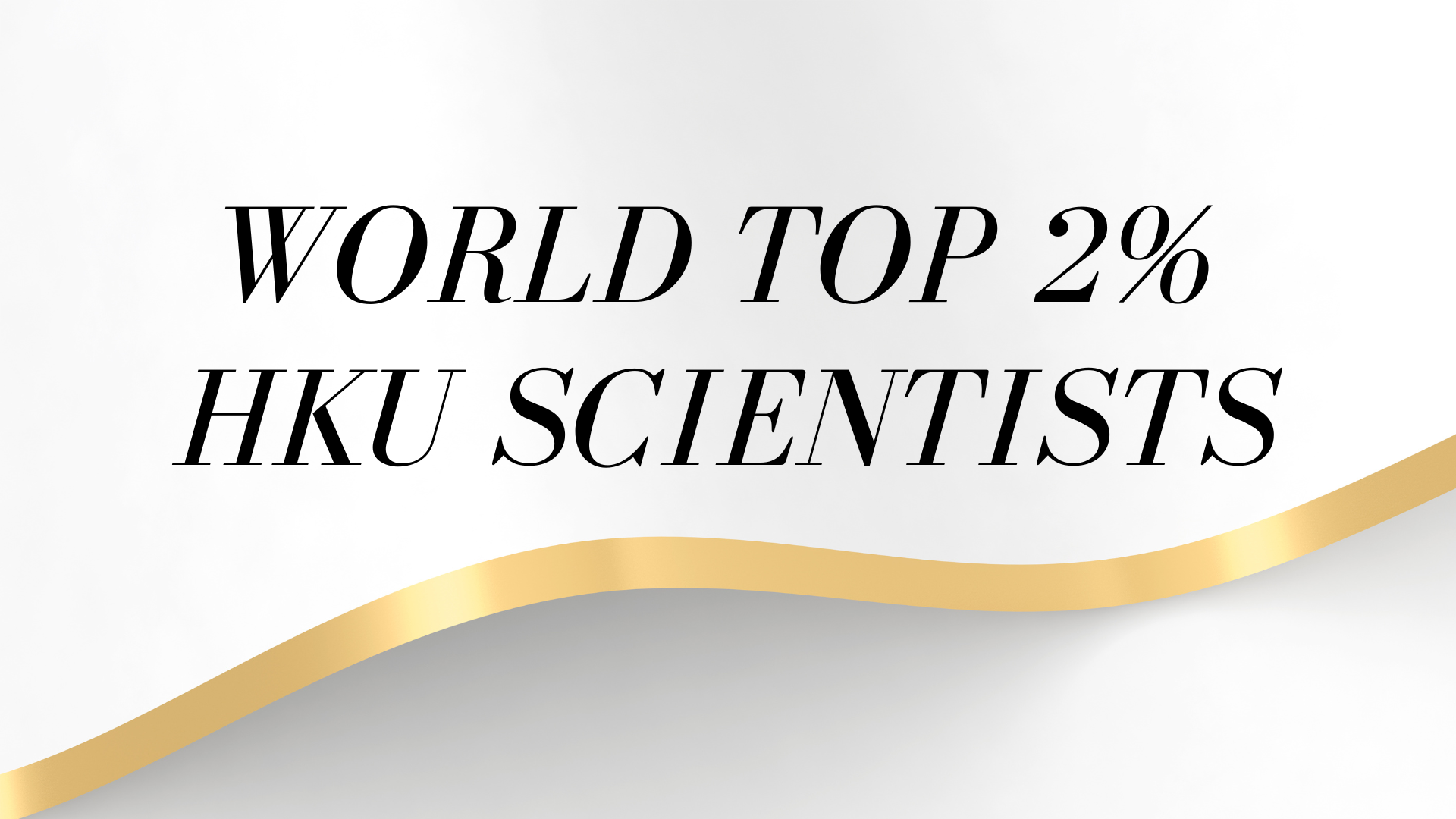
Top 2% Scientist by Stanford University
— by Florence Ng
Stanford University has released a publicly available database of top-cited scientists, the World’s Top 2% Scientists for 2022. The ranking list is created based on the bibliometric information retrieved from Scopus as of 1 September 2022, with the data updated to the end of citation year 2021. The datasets are freely available at Elsevier Data Repository (https://doi.org/10.17632/btchxktzyw.5).
Scientists worldwide are classified into 22 scientific fields and 174 sub-fields. The top scientists placed in a percentile rank of 2% or above in a sub-field are shortlisted and ranked based on their c-score (i.e. a composite indicator). The c-score focuses on impact (citations) rather than productivity (number of publications). It also incorporates information on co-authorship and author positions (single, first, last author). For more details on the development and use of the metric, you may further read the journal articles below:
Ioannidis, J.P.A., Boyack, K.W., & Baas, J. (2020). Updated science-wide author databases of standardized citation indicators. PLoS Biology 18(10): e3000918. https://doi.org/10.1371/journal.pbio.3000918
Ioannidis, J.P.A., Baas, J., Klavans, R., & Boyack, K.W. (2019). A standardized citation metrics author database annotated for scientific field. PLoS Biology 17(8): e3000384. https://doi.org/10.1371/journal.pbio.3000384
Ioannidis, J.P.A., Klavans, R., & Boyack, K.W. (2016). Multiple Citation Indicators and Their Composite across Scientific Disciplines. PLoS Biology 14(7): e1002501. https://doi.org/10.1371/journal.pbio.1002501
The career-long data, i.e., c-scores calculated from 1996 to 2021, have been used in our Top 2% HKU Scientists (by Elsevier) analysis to be introduced in the following paragraphs.
In this sense, we would like to emphasise the ethical and appropriate use of citation-based metrics, and the rankings derived from those data. Since the data used in the analysis are career-long data, it may contain bias against early career researchers as they may not have accumulated as many works as researchers at a later career stage. Readers shall be cautious when looking into the analysis results.
For more details on the responsible use of research metrics and ranking, please read our previous blog post at https://blog-sc.hku.hk/top-hku-researchers-the-research-com-rankings/.
Top 2% HKU Scientists
A total of 292 HKU scholars are included in the World Top 2% Scientists ranking, among which 221 are current HKU scholars and 71 are departed HKU scholars.
Within the 221 current HKU scholars being ranked, the top three affiliated faculties are the Li Ka Shing Faculty of Medicine (38%), Faculty of Engineering (25%), and Faculty of Science (13%).

Our scholars have been ranked in a total of 65 different subject areas. The subject areas with the most ranked HKU scholars are Oncology & Carcinogenesis (14), Education (13), Artificial Intelligence & Image Processing (11), Dentistry (11), Microbiology (9), and General & Internal Medicine (9).
The top 22 ranked subject areas are listed in the table:

In the ranking within each subject area, it is worth noting that 30 HKU scholars are ranked within the top 100 scientists worldwide in their respective subject areas. The below table shows the scholars who are ranked within Top 20 (in alphabetic order):
| Name | Faculty | Department | Subject area |
| Prof. Boey, Kam Weng | Faculty of Social Sciences | Department of Social Work & Social Administration | Geriatrics |
| Prof. Fan, Sheung Tat | Li Ka Shing Faculty of Medicine | Department of Surgery | Surgery |
| Prof. Gong, Peng | President’s Office | Department of Geography | Geological & Geomatics Engineering |
| Prof. Liang, Shunlin | Faculty of Social Sciences | Department of Geography | Geological & Geomatics Engineering |
| Prof. Pun, Ngai | Faculty of Social Sciences | Department of Sociology | Cultural Studies |
| Prof. Yeh, Anthony Gar On | Faculty of Architecture | Department of Urban Planning and Design | Urban & Regional Planning |
| Prof. Zhao, Guochun | Faculty of Science | Department of Earth Sciences | Geochemistry & Geophysics |
Extra tip:
The Libraries also offers various bibliometrics and research impact services to HKU faculties, departments and individual scholars. For more information, please contact us via scholarlycomm@hku.hk.
Reference
Ioannidis, J.P.A. (2022). September 2022 data-update for “Updated science-wide author databases of standardized citation indicators”. Mendeley Data, V5. doi: https://doi.org/10.17632/btchxktzyw.5
Ioannidis, J.P.A., Boyack, K.W., & Baas, J. (2020). Updated science-wide author databases of standardized citation indicators. PLoS Biology 18(10): e3000918. https://doi.org/10.1371/journal.pbio.3000918
Ioannidis, J.P.A., Baas, J., Klavans, R., & Boyack, K.W. (2019). A standardized citation metrics author database annotated for scientific field. PLoS Biology 17(8): e3000384. https://doi.org/10.1371/journal.pbio.3000384
Ioannidis, J.P.A., Klavans, R., & Boyack, K.W. (2016). Multiple Citation Indicators and Their Composite across Scientific Disciplines. PLoS Biology 14(7): e1002501. https://doi.org/10.1371/journal.pbio.1002501


